- For years, Canada’s global influence has waned as the nation stepped back from international affairs.
- Ongoing trouble in the Mideast, however, offers the potential to rectify this while protecting and advancing the interests of domestic cleantech.
- The choice to act is clear — but will ultimately demand bold leadership from the federal government.
Amidst the backdrop of regional war, crisis in the Red Sea offers Canada a rare opportunity to restore its place on the world stage and meaningfully advance its energy vision — creating enormous opportunities for Canadian cleantech innovators while helping shield them from global economic turbulence in the process.
Achieving this, however, will require a more proactive and imaginative approach to Middle Eastern matters than we’ve seen thus far from the federal government.
The Houthis, an anti-Western extremist militia controlling the northern half of Yemen, have drastically increased the frequency and brazenness of their unprovoked attacks on civilian vessels — indiscriminately targeting boats from numerous countries, firing missiles and drones at cargo ships, and abducting dozens of passengers and crew.
As distant and niche as this issue may sound, the stakes are extremely high. Conflict in this waterway has reshaped the region in the past, as its impacts broadly affect the economic structures the world depends on.
Currently, the Middle East produces nearly 40% of the world’s oil supply. Additionally, cargo of all sorts — making up a whopping 12% of global trade — must pass through the Red Sea in order to reach the Suez Canal, the only direct maritime path connecting Asia to Europe. As a result of ongoing conflict, oil markets have plummeted, major brands like IKEA have reported supply delays, and shipping giants like Maersk have shut down and/or completely rerouted operations.
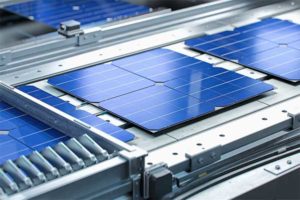
IEA Solar PV Global Supply Chains (IEA, Paris)
North American cleantech could also be headed for disruption, as many companies are fiercely dependent on imports of raw and finished goods from Asia — from solar-grade silicon to solar ingots, wafers, and cells. Shipments could face major delays, meaning longer wait times and higher prices for solar companies and their price-sensitive customers.
In response to growing trade pressure, U.S. President Biden has formed an international task force to protect the peaceful passage of ships. Canada has stated its intention to participate, though it’s signalled that the scope of its involvement will be minimal — vaguely offering to send “a handful of personnel” to assist, but declining to show initiative to ensure the mission’s success. If this is the extent of Canada’s involvement, it will be a major missed economic and geopolitical opportunity.
Issues in the Middle East are not isolated. Problems broadly intertwine and intersect and every action has a global ripple effect. It’s therefore inevitable that the pursuit of regional security and stability in the wake of the Iranian-backed Houthi threat will force key Western-backed states to confront their long-term energy plans in one way or another.
After all, oil’s tight grip on the region is a constant complication in the conflict and exposes Western interests — like reliable access to critical materials — to immense risk and instability. The developing Saudi-Israeli alliance against Iran and its proxies, including the Houthis, has been seen by President Biden as a key strategic necessity for peace. Yet, as long as Saudi Arabia’s economy remains dependent on fossil fuels and Western allies lack a qualitative edge through which to marginalize Iranian oil market weaponization, the effectiveness of this strategy is uncertain.
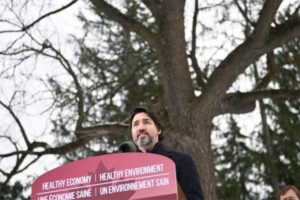
Prime Minister Justin Trudeau announces the government’s updated climate change plan in the Dominion Arboretum in Ottawa on Friday, Dec. 11, 2020. (Justin Tang/The Canadian Press)
That’s where Canada can play a role. As a broadly trusted, non-belligerent actor, Canada should be a leading voice at the table initiating and guiding conversations and partnerships about how clean, affordable renewables — particularly solar — can factor into the Middle East’s (one of the sunniest places in the world) energy future. The Trudeau government could massively expand the impact of its Net-Zero vision if it broadens its reach beyond Canada’s borders to influence dramatic change in a region that emits nearly 10% of global greenhouse gases. At the same time, there are opportunities to shield domestic companies from economic disruption while fostering new, global industry connections advantageous to cleantech. Bold leadership is needed to champion this vision and guide the way to a brighter future.
In the past, Canada has repeatedly risen above the Middle East’s back-and-forth to achieve productive results, and there’s no reason to suggest it can’t do so again. From promptly calming hostilities during the 1956 Suez Crisis, to the now-mythologized “Argo” hostage rescue in Iran, Canada has had an impressively outsized impact when it’s chosen to proactively leverage its national prowess — even in dangerous, powder-keg moments like today’s.
Real, history-altering changes happen when leaders think big and turn crises into opportunities for reflection, innovation, and growth. Canada’s federal government must channel the courage of its predecessors and ditch its reactionary, hands-off attitude in favour of helping make the world a safer and more sustainable place. By doing so, Trudeau can help restore Canada’s place on the world stage while protecting and enhancing cleantech growth at a critical point in history.




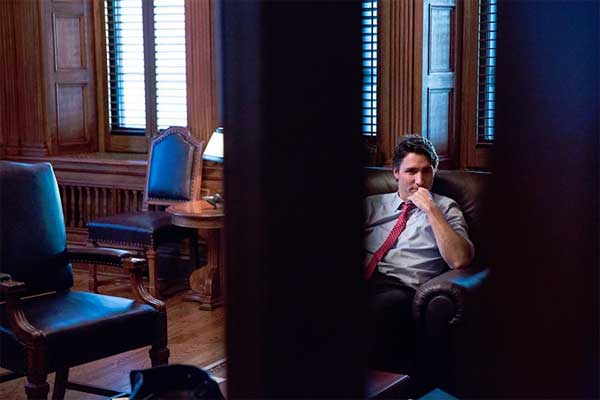

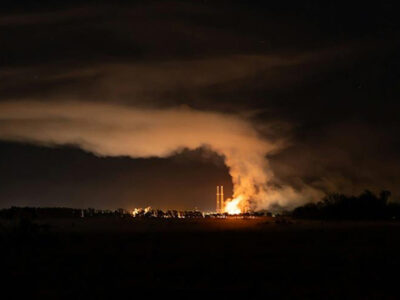

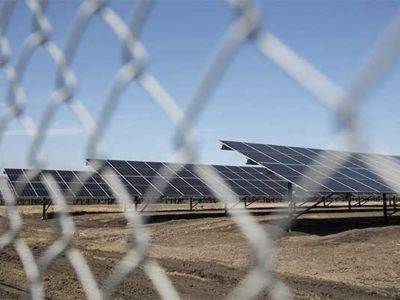
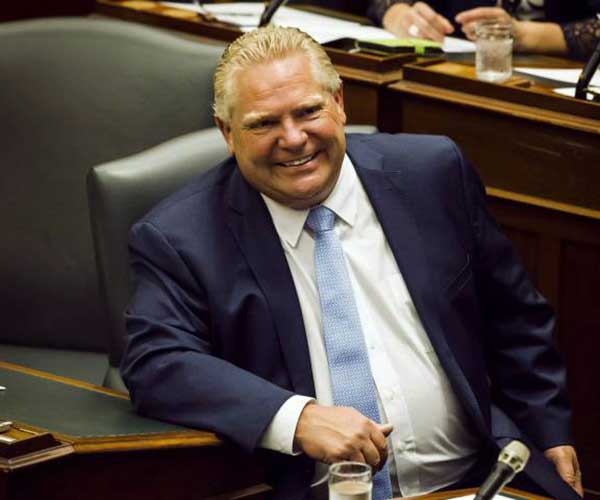




Comments